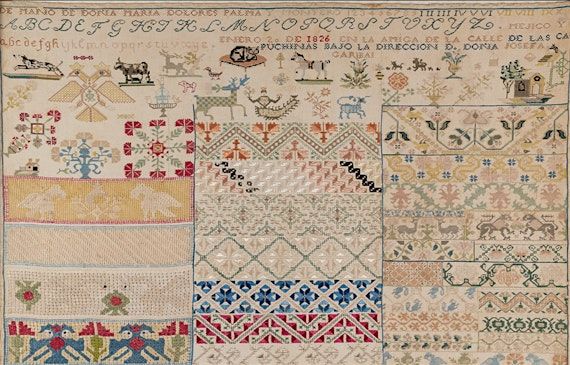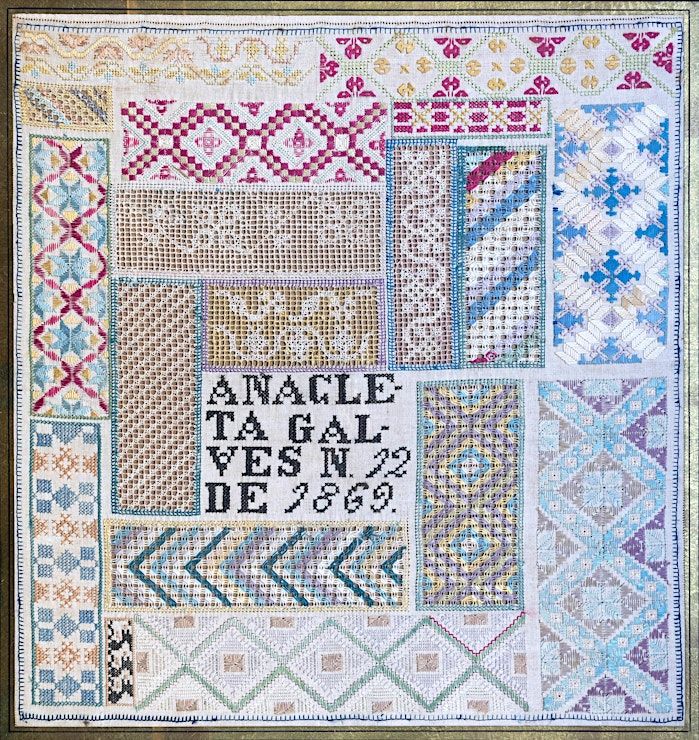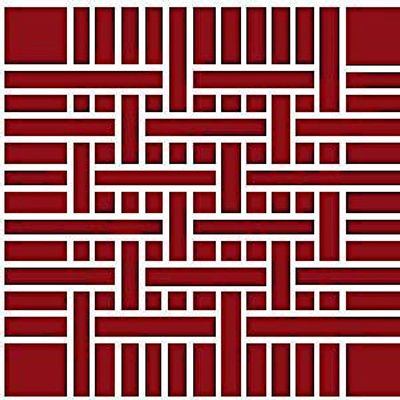
About this Event
This is a free in-person lecture for all. The lecture will also be streamed and recorded over Zoom for which you can purchase a ticket. A zoom link will be emailed to all ticket holders before the event begins.
TAC members do not need to purchase a Zoom ticket. A Zoom link will be emailed to you before the event. A recording will be emailed out and available to watch for 14 days following the talk, for TAC members and ticket holders.
“Este dechado” means “this sampler.” It is a phrase often found stitched on the schoolgirl samplers of girls and young women living in Mexico. With these words, the young sampler makers ask us to pay attention to their work - look carefully, interpret the meaning, understand the process, and appreciate their accomplishments. In Mexico, as in all western European countries and their colonies, needlework was an extremely important part of female education – all girls were taught to sew and most were expected to demonstrate their embroidery skills by creating a sampler. In the 18th- and early 19th-centuries, elaborate dechados made from sumptuous material by daughters of Mexico’s elite socio-economic classes were viewed as testaments to the girls’ religious virtue and a culmination of their needlework instruction. As the Mexican government assumed more responsibility for the education of its citizens, the making of dechados became more widespread and the importance of fancy needlework gradually changed.
In this richly illustrated presentation Dr. Anderson will provide an overview of girlhood samplers made in Mexico across time – the materials, formats, needlework techniques, instructional sequence, and possible meanings underlying some of Mexico’s distinctive motifs. In addition, she will introduce a few of the girls who embroidered Mexican samplers; provide insight into the educational options available in urban and rural areas; and discuss the impact of an increasingly secular educational system on the production and appearance of Mexican schoolgirl needlework. Using images of Mexican dechados from her own collection, as well as collections in Mexico and the United States, Dr. Anderson will present a curated view of Mexican schoolgirl samplers – their making and their meaning.

Dr. Lynne Anderson is a retired University of Oregon professor of education with a passion for researching schoolgirl samplers and for supporting sampler scholarship worldwide. Lynne is the founder and President of the Sampler Consortium, an international membership organization for individuals and organizations interested in the study of historic samplers. It posts on Instagram (@samplercentral) and sends out a monthly newsletter with information about exhibitions, lectures, collections, publications, and other sampler-related events. Lynne is also the Director of the Sampler Archive Project, a national initiative to locate, photograph, and document all American schoolgirl samplers so they can be included in its publicly accessible online database (samplerarchive.org). In this context Lynne and her team work with museums, historical societies, private collectors, and dealers to photograph and document the samplers and related girlhood embroideries in their collections. Lynne is also a frequent speaker at national and regional venues, has curated and co-curated multiple sampler exhibitions, and is the author of numerous sampler-related publications. Lynne has been collecting and researching Mexican samplers for more than a decade. She has studied private and public collections of Mexican samplers in both Mexico and the United States, and collaborated on research with the foremost scholars of Mexican girlhood embroidery.
Top photo: Mexican sampler made by Doña Maria Dolores Palma y Montero in 1826 under the instruction of Doña Josepha Garibai. Private collection. Image courtesy of M. Finkel & Daughter.
Lower photo: Mexican sampler made by Anacleta Galves in 1869. Collection of Lynne Anderson. Image courtesy of the owner.
Learn more about the Textile Arts Council and all of our upcoming events.
Event Venue & Nearby Stays
Koret Auditorium, deYoung Museum, San Francisco, United States
USD 7.18 to USD 17.85












